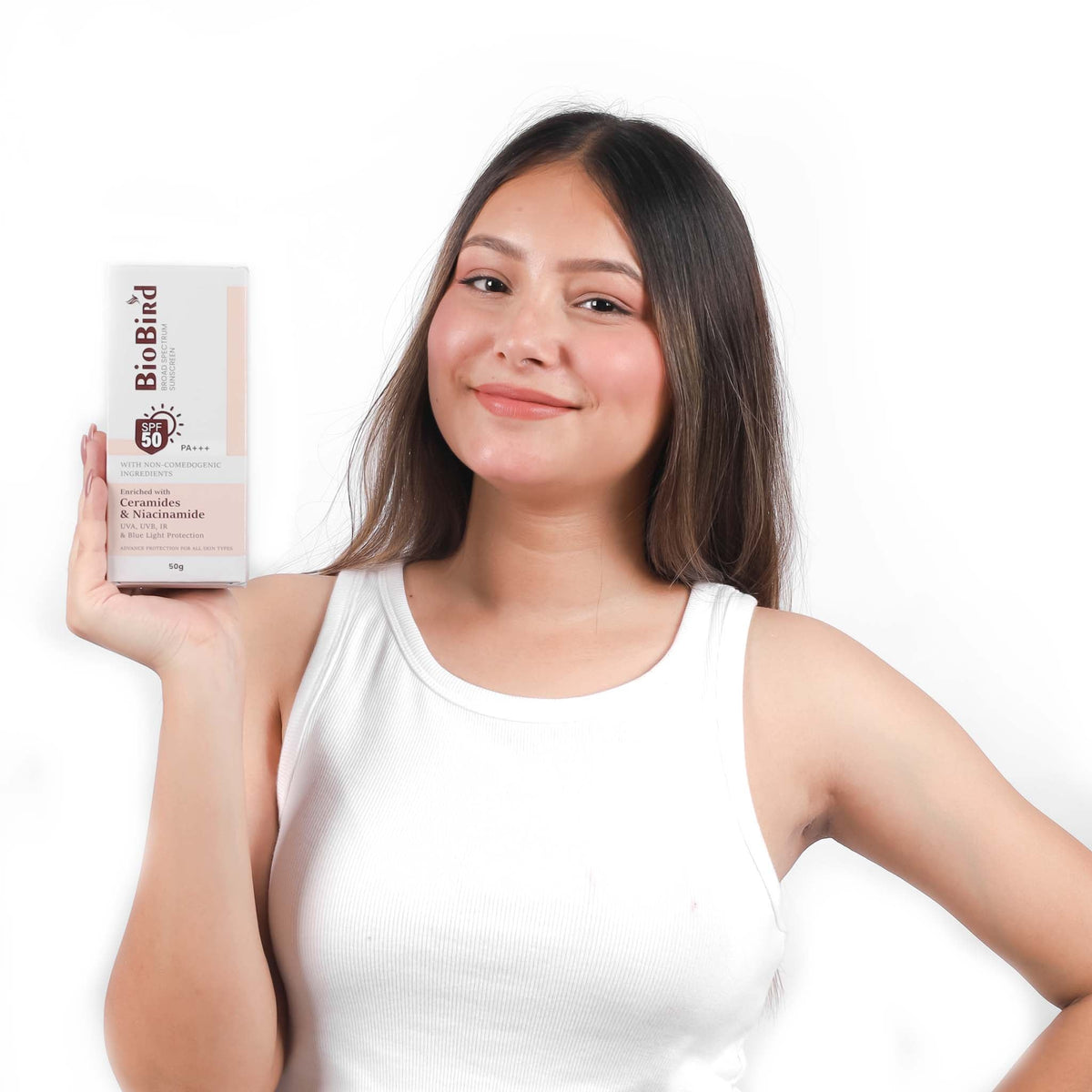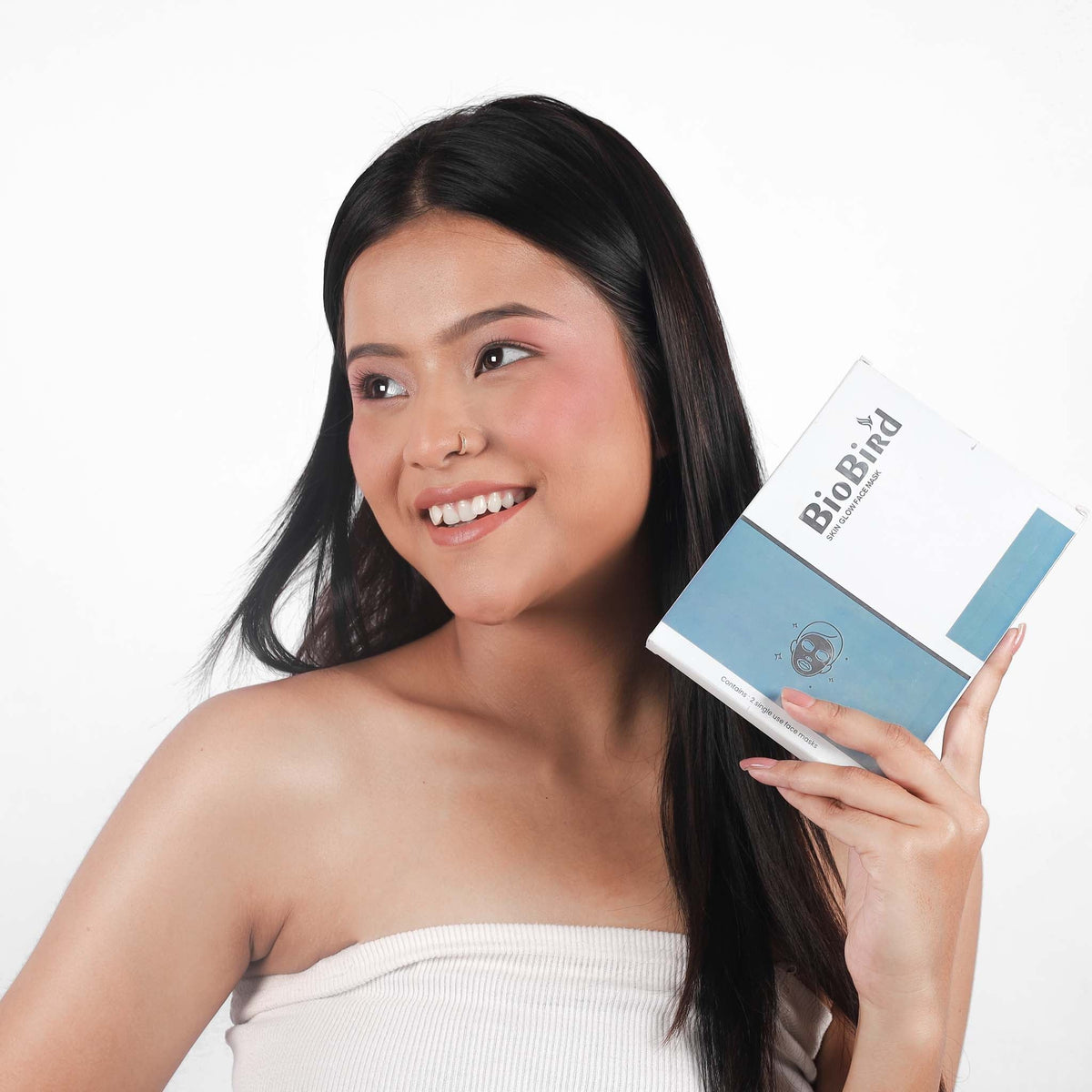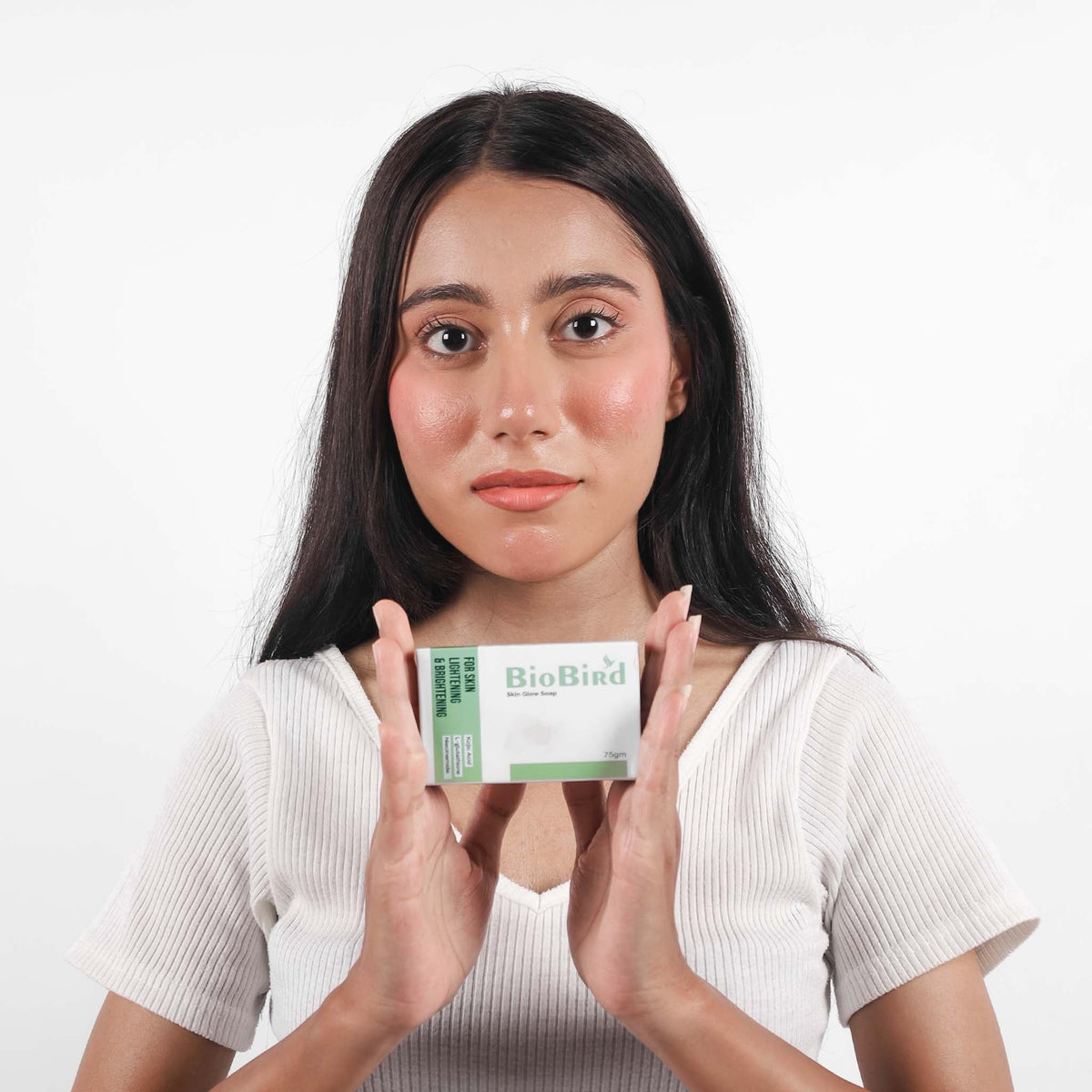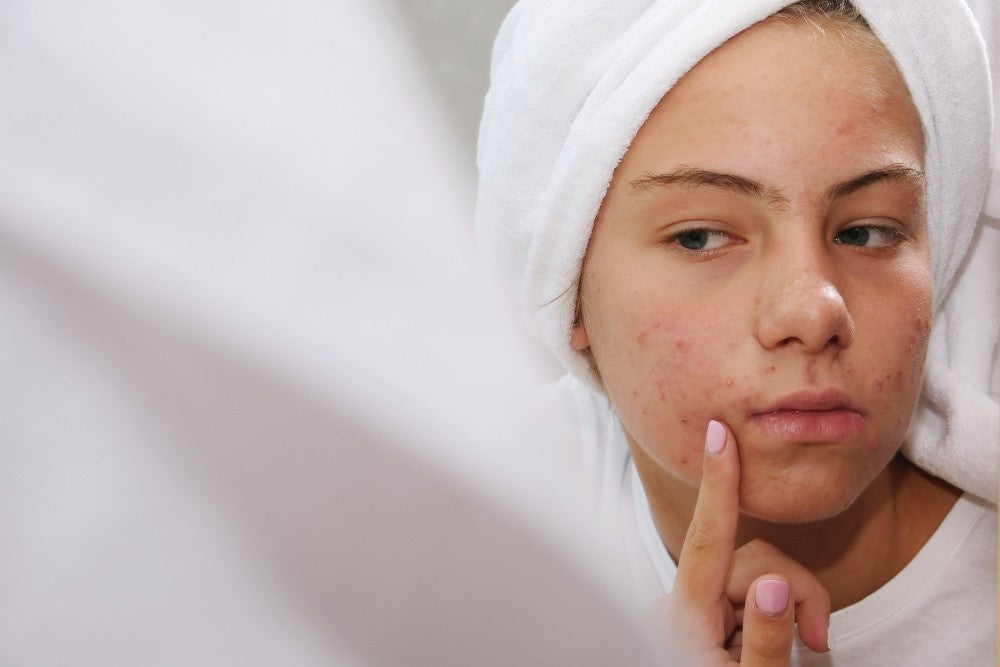Whether it’s a teenage acne breakout or unexpected adult hair loss, your skin and scalp are often the first to show signs of hormonal imbalance. Hormones’ impact on skin and hair health can be seen in both men and women.
In women, changes in estrogen and progesterone, especially during puberty, menstrual cycles, pregnancy, or menopause, can lead to acne or sudden hair thinning. In men, increased levels of androgens like testosterone can overstimulate oil glands and shrink hair follicles, causing oily skin, acne, and male pattern baldness.
Understanding how hormones affect your skin—the body’s largest organ—and your hair is key to managing your beauty and self-care routine. Let’s explore how different hormones influence skin and hair health and what you can do to keep them balanced.
Article Highlights
- How Hormones Affect Skin Health?
- Hormonal Imbalance and Hair Health
- 7 Tips to Balance Hormones for Better Skin and Hair
- Conclusion
- Frequently Asked Questions (FAQs)
How Hormones Affect Skin Health?
Hormones are powerful chemical messengers that regulate many functions in the body, including the health and appearance of your skin and hair. The main hormones that affect your skin are estrogen, progesterone, testosterone, and cortisol. Any imbalance in these hormones production can cause oily skin, hormonal acne, pimples and skin aging.

Here’s how hormones impact skin health:
- Testosterone: Present in both men and women (though in higher levels in men), testosterone stimulates the growth of sebocytes (cells that produce oil) and keratinocytes (skin cells). Excess testosterone can lead to increased oil production and clogged pores, which often results in acne, especially during puberty, menstruation, or conditions like PCOS.
- Estrogen: This reproductive hormone supports several skin functions, including pigmentation, inflammation control, and wound healing. It also boosts collagen and elastin production, which keeps skin firm, elastic, and smooth. A drop in estrogen levels, such as during menopause, can cause skin aging, dryness, wrinkles, and sagging.
- Progesterone: It has anti-inflammatory effects and helps prevent collagen breakdown. It also increases sebum production and promotes the growth of keratinocytes. Fluctuations in progesterone levels can lead to oily skin, clogged pores, and acne.
- Other Hormones: Growth Hormone, Cortisol, Thyroid Hormones, and Adrenaline: These hormones can increase activity in sebaceous (oil) glands. Elevated levels can lead to excess sebum production and worsen acne.
Hormonal Imbalance and Hair Health
Just like your skin, your hair health is deeply influenced by hormones. The hair growth cycle and follicle structure are affected by androgens (testosterone and DHT), estrogen, progesterone, and thyroid hormones, and fluctuations in their levels can cause hair thinning and baldness.

Here’s how hormones impact hair health:
- Androgens (Testosterone and Dihydrotestosterone – DHT): These hormones stimulate hair growth in areas like the face, underarms, chest, and pubic region. However, too much androgen—especially DHT—can lead to hair thinning and loss (androgenetic alopecia) in both men and women. This is especially common during menopause, pregnancy, or with conditions like PCOS.
- Estradiol: A form of estrogen, estradiol influences hair growth by binding to receptors in the scalp and regulating androgen activity. High estrogen levels (like during pregnancy) can result in fuller hair, while sudden drops (postpartum or during menopause) often lead to shedding or thinning.
- Progesterone: This hormone supports hair health by reducing androgen levels and blocking the conversion of testosterone into DHT. When progesterone levels drop, such as after childbirth or during menopause, hair loss can occur.
- Prolactin: Produced by the pituitary gland, prolactin is best known for aiding milk production, but it also influences hair. High levels can shorten the hair growth cycle and lead to early hair shedding by shrinking hair follicles.
- Thyroid Hormones (T3 and T4): Thyroid hormones help regulate hair growth. Low thyroid function (hypothyroidism) can slow hair growth and cause shedding. Balanced thyroid hormones, on the other hand, help maintain healthy hair by keeping it in the growth (anagen) phase longer.
- Melatonin: Melatonin regulates sleep and biological rhythms and acts as an antioxidant. It supports hair health by protecting follicles from stress. It also affects how follicles respond to estrogen.
- Cortisol: Known as the stress hormone, cortisol is released by the adrenal glands. High cortisol levels can interfere with hair growth by breaking down vital skin and hair components, while healthy levels may support hair health.
7 Tips to Balance Hormones for Better Skin and Hair Health
Hormonal balance is essential for glowing skin and strong, healthy hair. Here are some practical lifestyle and dietary strategies to help balance hormones naturally:

- Focus on Daily Nutrition: Vitamins (A, D, B-complex) and minerals like zinc and magnesium are essential for hormone regulation, oil control, and hair growth. For healthy skin and hair include leafy greens, nuts, seeds, fish, and whole grains in your diet.
- Engage in Regular Physical Activity: Exercise helps regulate insulin, cortisol, and sex hormones. Choose moderate activities like walking, cycling, or strength training and avoid over-exercising, which can increase cortisol.
- Manage Stress: Chronic stress raises cortisol, which can worsen acne and hair thinning. Practice meditation, deep breathing, yoga, or journaling and aim for 7–9 hours of restful sleep each night for reducing stress.
- Support Gut Health: A healthy gut helps detox excess hormones. Eat fiber-rich foods (vegetables, fruits, whole grains), probiotics (yogurt, kimchi), and prebiotics (onions, garlic). Limit alcohol, sugar, and processed foods.
- Regulate Estrogen and Androgens: Eating hormone-balancing foods like flaxseeds, cruciferous vegetables (broccoli, cabbage), omega-3s (from fish or chia seeds), and antioxidants (berries, green tea) can help regulate levels of estrogen and androgens, thus supporting healthy skin and hair.
- Balance Blood Sugar and Insulin Levels: High sugar spikes insulin, which disrupts other hormones, thus choose low-glycemic foods (legumes, whole grains, vegetables) and reduce refined carbs and sugary snacks.
- Get Medical Testing If Needed: If you experience chronic acne, hair loss, irregular periods, or symptoms of PCOS or thyroid issues, ask your doctor to test your hormone levels, like estrogen, testosterone, cortisol, thyroid hormones, and insulin. Get proper treatment for hormonal acne and hair thinning, as these conditions are difficult to treat on your own.
Conclusion
Hormones play a powerful role in your skin and hair health. Fluctuations in estrogen, androgens, thyroid hormones, and cortisol can lead to acne, hair thinning, or excessive shedding. But with the right knowledge, lifestyle adjustments, and medical support, you can manage these changes and take control of your skin and hair health at every stage of life.
Frequently asked Questions (FAQs)
1) Can hormonal imbalance cause hair loss?
Yes. High levels of DHT or low estrogen can shrink hair follicles, leading to hair thinning and loss.
2) How do I know if my acne is hormonal?
Hormonal acne usually appears on the chin or jawline and flares up around your menstrual cycle or during stress.
3) Can hormones affect skin texture?
Yes. Estrogen keeps skin hydrated and smooth. When it’s unbalanced, the skin may become oily, dry, or acne-prone.
4) Do PCOS and menopause affect skin and hair?
Yes. Both conditions can increase androgen levels, leading to acne, oily skin, and hair thinning.
5) Can hormone imbalances be tested?
Yes, blood tests can check hormone levels like estrogen, progesterone, testosterone, thyroid hormones, and cortisol.






0 comments